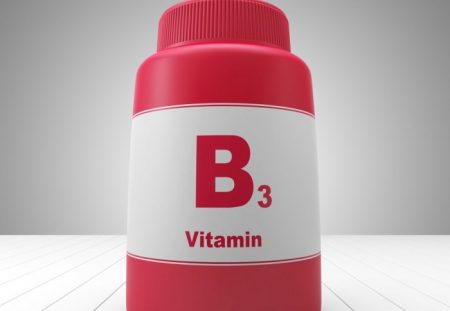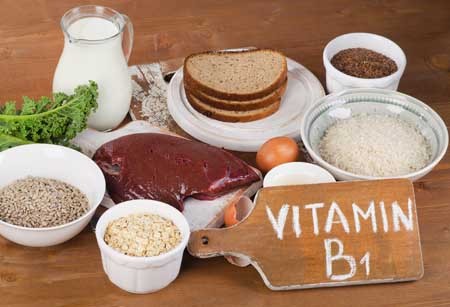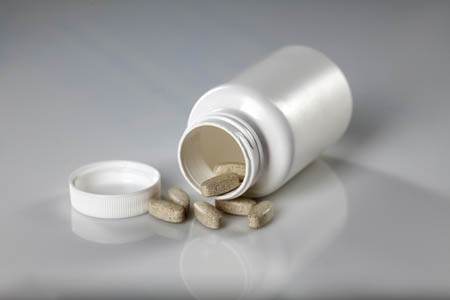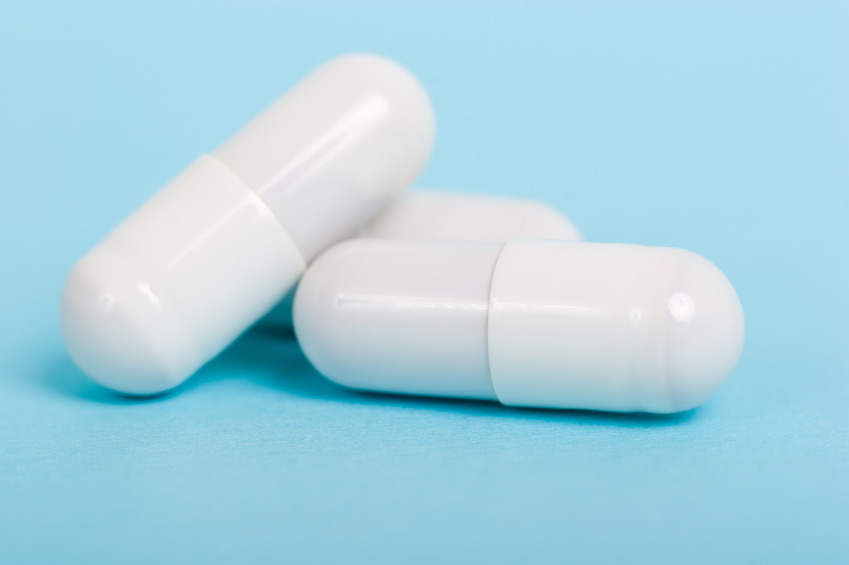Vitamin D Deficiency Linked to Depression, But Supplements Helped
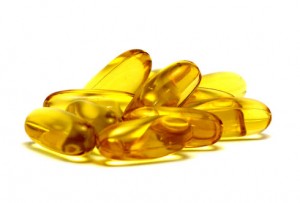 A review article in the Journal of Affective Disorders in 2017 summarized findings linking vitamin D to depression. Researcher Gordon B. Parker and colleagues found an association between low vitamin D levels and depression. They also found that vitamin D supplements improved treatment in people with clinical depression and vitamin D deficiency.
A review article in the Journal of Affective Disorders in 2017 summarized findings linking vitamin D to depression. Researcher Gordon B. Parker and colleagues found an association between low vitamin D levels and depression. They also found that vitamin D supplements improved treatment in people with clinical depression and vitamin D deficiency.
Editor’s Note: Vitamin D supplements are an obvious recommendation for people who are deficient. What has not yet been resolved is whether vitamin D is helpful to people who are depressed but not vitamin D deficient.
In a 2013 study in the Australian and New Zealand Journal of Psychiatry, Nayereh Khoraminya and colleagues suggested that a 1500 IU dose of vitamin D3 combined with the selective serotonin reuptake inhibitor (SSRI) antidepressant fluoxetine was more effective than fluoxetine plus placebo in depressed patients who were not necessarily deficient in vitamin D.
Giving Infants Vitamin D Can Reduce Type 1 Diabetes
 A 2001 cohort study in Finland showed that giving vitamin D supplements to infants may reduce their risk for type 1 diabetes. The data for the study, by Elina Hyppönen and colleagues in the journal The Lancet, came from 10,366 people born in 1966. Their mothers were part of a medical registry that collected information on vitamin D given to children during the first year of their lives.
A 2001 cohort study in Finland showed that giving vitamin D supplements to infants may reduce their risk for type 1 diabetes. The data for the study, by Elina Hyppönen and colleagues in the journal The Lancet, came from 10,366 people born in 1966. Their mothers were part of a medical registry that collected information on vitamin D given to children during the first year of their lives.
Of the 10,366 people in Hyppönen’s study, 81 had been diagnosed with type 1 diabetes by the end of 1997. Those participants who were given vitamin D supplements during their first year of life were less likely to be diagnosed with type 1 diabetes than other participants. Those who regularly took the recommended dose at the time, 2000 IU daily, during their first year of life had significantly lower diabetes rates 33 years later.
NAD+ Supplements May Not Contain Much NAD+
NAD, or nicotinamide adenine dinucleotide, is found in all living cells. Its oxidized form, NAD+, has become popular as a nutritional supplement following a 2013 Harvard study that suggested it might slow aging in mice. However, commercially available NAD+ supplements may contain less than 100mg of NAD+, when ten times that amount would be required to produce any effect. NAD+ has not been tested in clinical trials.
Vitamin B3 is a better-tested alternative. A 2016 controlled clinical trial of a type of vitamin B3 called nicotinamide riboside (NR) found that this supplement was safe for humans and increased levels of NAD+. In the study by Samuel A.J. Trammell and colleagues in the journal Nature Communications, single doses of 100mg, 300mg, and 1000mg were all found to be safe. Larger doses increased NAD+ metabolism by greater amounts.
Check with your doctor before taking an NAD+ or vitamin B supplements.
Thiamine (Vitamin B1) May Increase Effectiveness of Antidepressants
A new study suggests that the nutritional supplement vitamin B1, also known as thiamine, can improve symptoms of depression when taken with an antidepressant. Edith Holsboer-Trachsler and colleagues presented the research from their randomized, double-blind, placebo-controlled study at a recent scientific meeting. In a 12-week study, about 50 adults (averaging 35 years of age) with major depression were prescribed a selective-serotonin reuptake inhibitor (SSRI) antidepressant. In addition, half received thiamine supplements while the other half were given placebos. Starting at six weeks, those receiving thiamine with their antidepressant showed more improvement in their depressive symptoms than those receiving the antidepressant alone.
Thiamine is an essential nutrient for humans. It is found in foods such as yeast, pork, cereal grains, and certain vegetables. Thiamine deficiency has been linked to irritability and symptoms of depression, while thiamine supplementation can improve mood and reduce feelings of stress. No side effects were reported in the study.
Holsboer-Trachsler and colleagues hope that thiamine supplementation may help patients adhere to their antidepressant regimens by decreasing the time it takes until their moods begin to lift.
In Small Open Study, Dietary Supplement Improves Post Partum Blues
Post-partum depression affects 13% of new mothers, but little is known about how to prevent it. Doctors are researching ways of reducing post-partum blues, which can occur 4–6 days after delivery, when levels of the enzyme monoamine oxidase-A are high. At a 2015 scientific meeting, researchers led by Yekta Dowlati of the Centre for Addiction and Mental Health at the University of Toronto reported that a nutritional supplement designed to counteract the high levels of monoamine oxidase-A improved depression among 17 healthy women who had recently given birth, compared to 16 new mothers who did not receive the supplement. The supplement contained 2g of tryptophan and 10g of tyrosine, both amino acids found in protein-rich foods, plus blueberry juice and a blueberry extract.
Micronutrient Formulas Treat A Variety of Behavioral Disorders
At the 2015 meeting of the American Academy of Child and Adolescent Psychiatry, researcher Charles Popper reviewed the literature to date about broad-spectrum micro-nutrient treatments for psychiatric disorders in young people, concluding that these formulations of vitamins and minerals can reduce symptoms of aggressive and disordered conduct, attention deficit hyperactivity disorder, mood disorders, anxiety, and stress. Four randomized controlled trials showed that micronutrient formulas reduced violence and major misconduct in children.
Popper warned that while these micronutrients can be helpful in treating children who have never been prescribed psychiatric medication, they can interact dangerously with psychiatric medications in children who do take them.
At the same meeting, researcher Bonnie Kaplan reported that six randomized controlled trials of broad-spectrum micro-nutrients and B-complex vitamins in adults with and without psychiatric disorders showed that both of the formulas reduced anxiety and stress following natural disasters (which are associated with the development of post-traumatic stress disorder (PTSD)).
Nutritional Supplement Minimizes Stress After a Natural Disaster
Certain nutritional supplements may help people cope following natural disasters. Following a 7.1 magnitude earthquake in Christchurch, New Zealand, in 2010, researchers there who were working on a clinical trial of a broad spectrum mineral and vitamin formula for ADHD realized that they could compare participants who had been taking the nutritional supplements at the time of the earthquake with those who had either already completed the trial or had not yet begun it. Two weeks after the quake, those who had been taking the multivitamin at the time of the quake were less anxious and stressed than those who hadn’t been taking the formula.
When another large earthquake struck five months later, the researchers implemented a randomized trial comparing two doses of the same broad spectrum supplement with a B Complex vitamin formula that had previously shown efficacy for stress and anxiety. Those participants taking any supplement showed fewer symptoms of post-traumatic stress disorder (PTSD) a month after the second quake compared to controls, and those taking the higher dose of the broad spectrum formula had greater improvements in mood and anxiety than those taking the B Complex supplement.
More recently, in Alberta, Canada, flooding forced many people from their homes. Researchers there who were studying the effects of micronutrients on stress and anxiety realized they had the opportunity to replicate the research from New Zealand in a different type of environmental disaster.
Researcher Bonnie J. Kaplan and colleagues recruited adults who had been affected by the flood, and randomized the participants to receive different types of supplements: vitamin D (1 pill/day); a B complex vitamin containing B6, B12, and several other nutrients (1 pill/day); or a broad spectrum supplement containing 24 vitamins and minerals and several botanical extracts (4 pills/day). No placebo was used—it was considered unethical to deny participants access to a potentially helpful treatment.
In a 2015 article in the journal Psychiatry Research, the Alberta team reported that while all of the nutrient supplements minimized stress after the flood, patients randomized to the B complex vitamin or the broad spectrum formula had less stress and anxiety following the flood than those randomized to vitamin D.
We have previously described a broad spectrum vitamin preparation called EMPowerplus, used by psychiatrist Charles Popper and psychologist Mary A. Fristad to treat children with treatment-resistant bipolar disorder. This may be the same formula used in the Alberta study. We await larger trials of this preparation in children with bipolar disorder.
Multivitamin and Mineral Preparations for Childhood Bipolar Disorder
 Researcher Charles Popper gave a talk at the 2014 meeting of the American Academy of Child and Adolescent Psychiatry on the benefits of nutritional supplements designed to provide multiple vitamins and minerals to children with bipolar disorder and other dyscontrol syndromes, such as attention deficit hyperactivity disorder (ADHD) and oppositional defiant disorder. Popper reviewed the literature on the substantial incidence of vitamin and mineral deficiencies among these children.
Researcher Charles Popper gave a talk at the 2014 meeting of the American Academy of Child and Adolescent Psychiatry on the benefits of nutritional supplements designed to provide multiple vitamins and minerals to children with bipolar disorder and other dyscontrol syndromes, such as attention deficit hyperactivity disorder (ADHD) and oppositional defiant disorder. Popper reviewed the literature on the substantial incidence of vitamin and mineral deficiencies among these children.
A modicum of data support the effectiveness of supplements for children with these disorders. One of these supplements is called EMPowerPlus and is sold online. It is moderately expensive and must be given under the supervision of a knowledgeable treating physician. While it is relatively safe in medication-free children, Popper says it can exacerbate withdrawal reactions from some psychotropic medications.
In addition, EMPowerPlus greatly increases lithium-related side effects, in patients taking lithium, the dose must be reduced to about one-tenth of a normal dose for those who are adding EMPowerPlus.
Popper and another researcher, Mary Fristad, have both seen excellent responses to this type of supplementation in children with bipolar disorder who have been unresponsive to more traditional drugs.
In another study by Rita Aouad et al., 72.3% of 980 children with a variety of psychiatric diagnoses had insufficient vitamin D levels (values < 30 nanograms/ml) and 26.7% had vitamin D deficiency (values < 20 nanograms/ml). These data support the rationale for vitamin D supplementation, especially in those who have low levels to start with.
Micro-Nutrient Product Effective in Adult ADHD
EMPowerPlus is a nutritional supplement marketed by the company Truehope as a way of correcting nutritional deficiencies that contribute to depression, anxiety, bipolar disorder, and attention-deficit hyperactivity disorder (ADHD). In 2014 Rucklidge et al. published the first controlled study of EMPowerPlus in the British Journal of Psychiatry showing that the supplement was more effective than placebo in adults with untreated ADHD.
EMPowerplus contains 36 ingredients, including 14 vitamins, 16 minerals, 3 amino acids, and 3 antioxidants. Patients were randomized to receive either 15 EMPowerPlus pills per day or 15 placebos per day for 8 weeks, and those patients receiving the supplement were rated as more improved by the end of the study. Effect sizes were moderately robust and side effects did not differ.
Editor’s Note: Multiple uncontrolled studies have suggested the efficacy of EMPowerPlus in childhood mania and related conditions, but this is the first formal placebo-controlled study of the supplement in adults with ADHD. A study in children with ADHD is planned, but it would also be important to study this micronutrient formulation in childhood bipolar disorder, where there is some anecdotal evidence (from Charles Popper at McLean Hospital in Boston and Mary Fristad at the Ohio State University) of excellent responses in children with highly treatment-resistant bipolar illness.

